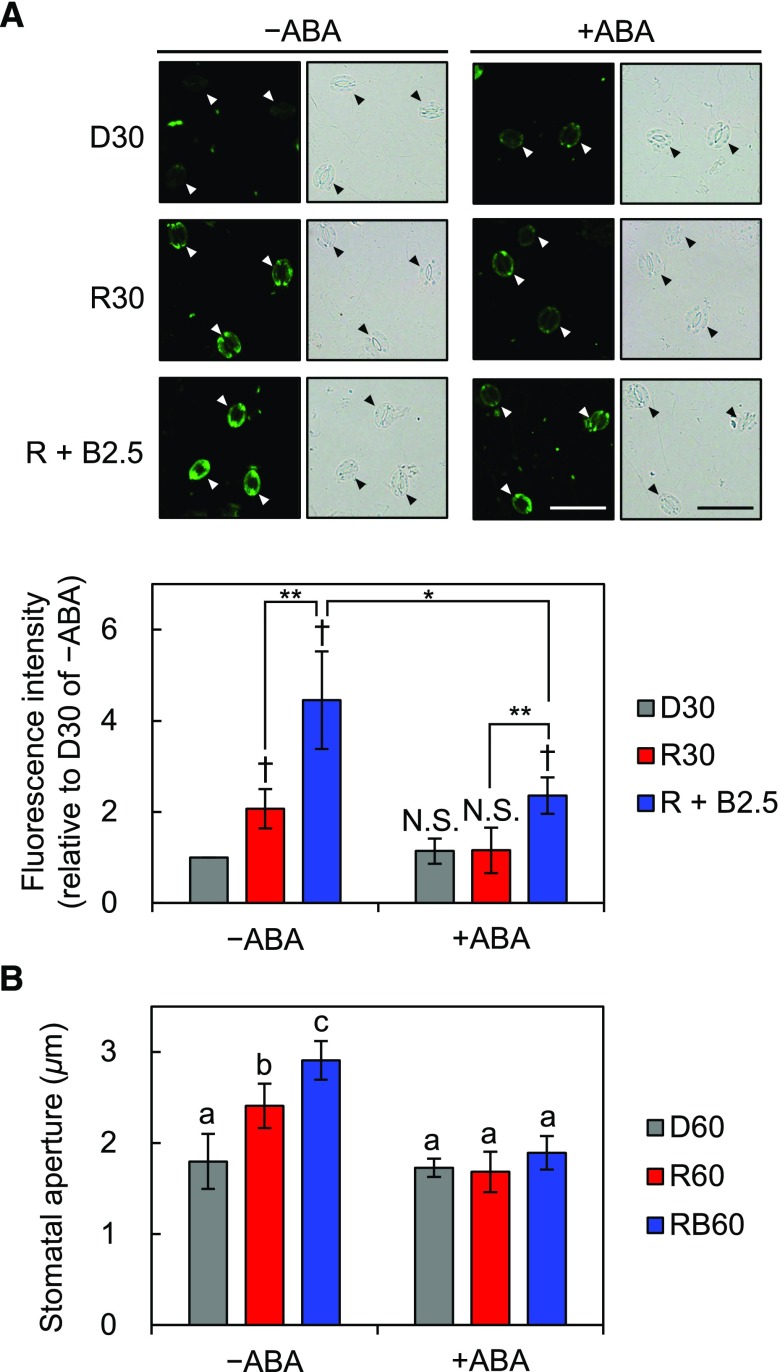Figure 4.
Inhibition of the light-induced phosphorylation of PM H+-ATPase in guard cells and stomatal opening in whole leaves by the phytohormone ABA. Mature leaves harvested from dark-adapted plants were pretreated with 20 µm ABA dissolved in 0.1% (v/v) dimethyl sulfoxide (DMSO; +ABA) or 0.1% (v/v) DMSO alone (–ABA) for 30 min in the dark before light illumination. A, Immunohistochemical detection of the phosphorylation of PM H+-ATPase in guard cells using anti-pThr antiserum. Pretreated leaves were illuminated with red light (600 µmol m–2 s–1) for 30 min (R30) followed by blue light (5 µmol m–2 s–1) superimposed on red light for 2.5 min (R + B2.5) or kept in the dark (D30). Typical fluorescence and bright-field images (top) and quantification of the fluorescence intensities (bottom) are shown. Data represent means of relative values from four independent measurements with sd. Daggers denote that the mean is statistically significantly higher than D30 of –ABA set to 1. N.S., Not significant (one-tailed one-sample Student’s t test: †, P < 0.01; and N.S., P > 0.18). Asterisks indicate that the mean of R + B2.5 is statistically significantly higher than that of R30 within each treatment and that the mean of R + B2.5 of +ABA is statistically significantly lower than that of –ABA (one-tailed Student’s t test: *, P < 0.01; and **, P < 0.005). Bars = 50 µm. B, Measurement of light-induced stomatal opening under ABA treatment. Pretreated leaves were illuminated with red light (R60), both red and blue light (RB60), or kept in the dark (D60) for 60 min. Light intensities were the same as in A. Data represent means of representative values from four independent measurements with sd. Different letters indicate statistically significant differences among means (Tukey’s test: P < 0.05).

